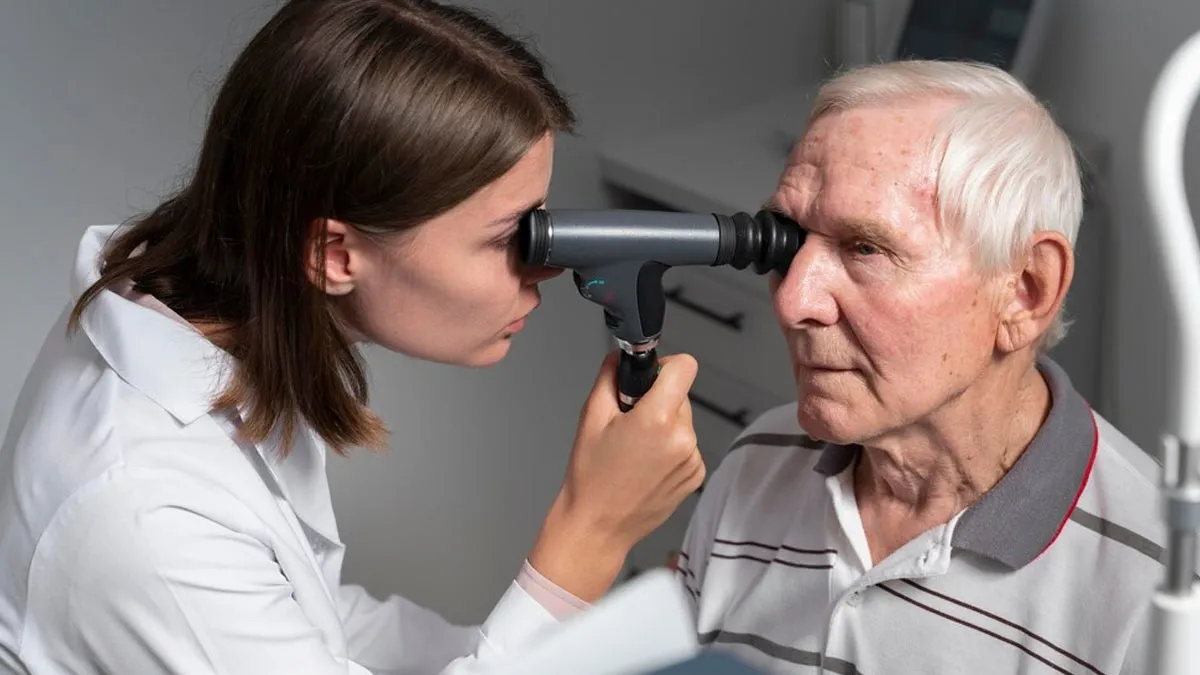
Our eyes make it possible for us to see the world, to perceive what’s around us, and to keep us from harm’s way. Yet we pay little attention to taking care of them. Regular eye exams are crucial for maintaining eye health and detecting vision changes. Interestingly, these routine check-ups can also provide insights that go beyond our vision. Some experts and scientific evidence claim that they could potentially identify dementia risk in elderly people.
Table of Content:-
To know more, OnlyMyHealth connected with Dr Purendra Bhasin, MBBS, MS - Ophthalmology, Founder and Director, Ratan Jyoti Netralaya, Gwalior.
Can Eye Tests Detect Dementia Risk?
Some patients are often unaware that their eyes can reveal much more than just vision problems, said Dr Bhasin, adding that research suggests that eye tests can help detect early signs of dementia.
He explained, “Since the eyes are directly connected to the brain through the optic nerve, any changes in the brain can sometimes be observed in the eyes. Regular eye check-ups can help spot early warning signs of cognitive decline before noticeable symptoms appear.”
A study involving 1202 older adults, aged 60-94, examined the link between vision and cognitive decline and found that worse visual acuity, or blurry vision, was associated with declines in language and memory. Poor contrast, or difficulty detecting objects set against similar-coloured backgrounds, was linked to declines in all thinking skills tested, including language, memory, attention and visuospatial ability. Problems with depth perception are also linked to language and memory decline. This suggested that different vision problems seem connected to different thinking problems, with poor contrast being especially concerning for overall cognitive decline.
Changes In The Eye That Might Indicate Cognitive Decline
There are several changes in the eyes and vision that may suggest early dementia.
“One common sign is thinning of the retina, which can be detected through an eye exam. The retina is a layer at the back of the eye that contains nerve cells, and its thinning may indicate brain shrinkage, a characteristic of dementia,” said Dr Bhasin.
He added, “Some people with dementia also experience changes in vision, such as difficulty recognising faces, judging distances, or distinguishing between colours. These changes are linked to problems in the brain's visual processing areas rather than issues with the eyes themselves.”
Optical Coherence Tomography (OCT) is an advanced imaging technique that makes eye exams more useful in detecting dementia. According to Dr Bhasin, it provides a detailed image of the retina and can measure its thickness. A thinner retina may indicate a higher risk of cognitive decline.
Another technology is retinal imaging, which can detect changes in the tiny blood vessels of the eye. Since vascular problems in the brain are linked to dementia, observing similar issues in the eyes can provide important clues about brain health.
When Is Regular Eye Tests Recommended?
According to the American Academy of Ophthalmology (AAO), all healthy adults are recommended to get a baseline eye exam with an ophthalmologist by age 40. Seniors over the age of 65 should see an ophthalmologist every one to two years.
“It is recommended that individuals start having regular eye tests in their 40s or 50s, especially if they have a family history of dementia. However, even younger adults should have routine eye exams to monitor overall eye health. As people age, eye tests become even more important for detecting not just vision problems but also potential signs of cognitive decline,” said Dr Bhasin.
Conclusion
Getting regular eye exams is crucial not only for maintaining vision but also for detecting early dementia risk. Advanced technologies like OCT and retinal imaging enhance the ability of eye exams to detect subtle changes that may indicate cognitive decline. While older adults should be more vigilant and regular with their eye tests, young people should also get their eyes checked once in a while. Consult an ophthalmologist for any doubts and concerns.
Also watch this video
How we keep this article up to date:
We work with experts and keep a close eye on the latest in health and wellness. Whenever there is a new research or helpful information, we update our articles with accurate and useful advice.
Current Version